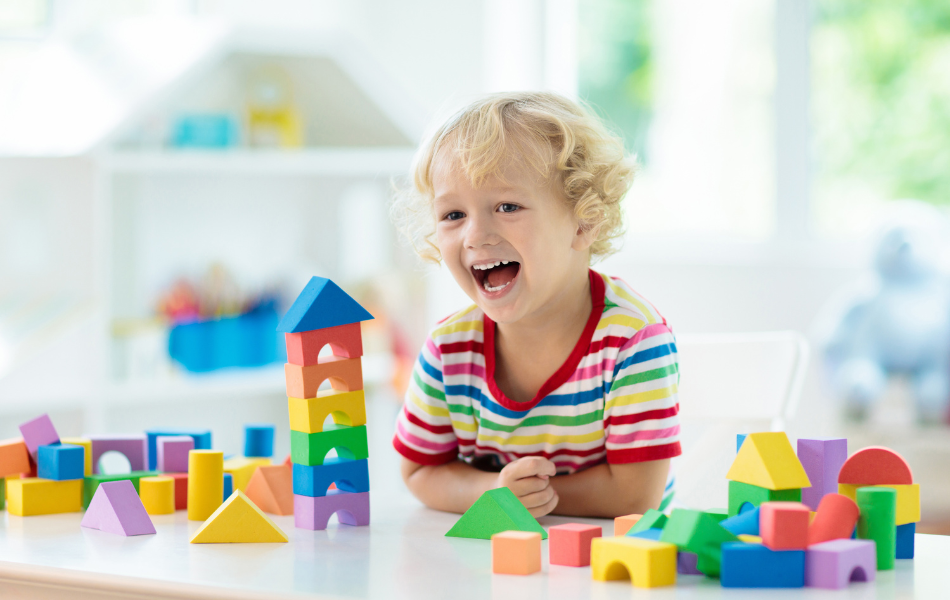Navigating Perfectionism: Children Who Strive for Perfect delves into strategies for empowering perfectionist children to thrive beyond their tendencies.
Perfectionism in children is a multifaceted trait that manifests in various aspects of their lives, ranging from academics and extracurricular activities to social interactions and personal development. Unlike healthy striving for excellence, perfectionism involves an excessive concern with making mistakes, an intense fear of failure, and a relentless pursuit of flawlessness.
Children who exhibit perfectionistic tendencies often face a myriad of challenges that can impact their well-being and development. From an early age, these children may set unattainable standards for themselves, leading to chronic stress, anxiety, and self-doubt. Their relentless pursuit of perfection can hinder their ability to enjoy activities, form meaningful relationships, and cope with setbacks effectively.
In academic settings, perfectionistic children may experience immense pressure to achieve top grades at all costs, leading to burnout, procrastination, and a fear of taking risks. Similarly, in social situations, they may struggle with the fear of judgment or rejection, inhibiting their ability to express themselves authentically and form genuine connections with others.
As parents, it’s crucial to recognize the challenges faced by perfectionistic children and provide them with the necessary support and guidance to navigate their perfectionistic tendencies healthily. By understanding the underlying factors contributing to perfectionism and implementing effective coping strategies, we can help children cultivate resilience, self-compassion, and a balanced approach to success and failure.
Throughout this blog, we’ll delve deeper into the complexities of perfectionism in children, exploring its psychological underpinnings, its impact on various aspects of their lives, and practical strategies for fostering their well-being and growth. By gaining insight into the world of perfectionistic children, we can better equip ourselves to support and empower them on their journey toward fulfillment and authenticity.
- The Perfectionist Child: Characteristics and Challenges
- Psychological Insights into Perfectionism
- Impact on Relationships and Social Interaction
- Challenges Faced by Parents in Supporting the Perfectionist Child
- Coping Strategies and Solutions
- Encouraging Healthy Development
- Teach Your Child to Look at Things from a Different Angle
- A Successful Activity Habit to Increase Emotional Awareness and Intelligence
- Conclusion
- Questions That Are Asked
The Perfectionist Child: Characteristics and Challenges

Description of the Perfectionist Child’s Behavior
The perfectionist child exhibits a range of behaviors that reflect their unyielding pursuit of flawlessness and aversion to failure. Some common characteristics include:
- High Standards: Perfectionistic children often set impossibly high standards for themselves in various areas of their lives, including academics, sports, and personal achievements. They strive for nothing less than perfection in everything they do.
- Fear of Failure: Perfectionistic children have an intense fear of making mistakes or falling short of their own or others’ expectations. They may go to great lengths to avoid situations where they might fail or be judged unfavorably.
- Rigid Thinking: These children tend to engage in all-or-nothing thinking, viewing situations in terms of success or failure, with no room for ambiguity or compromise. They may become frustrated or anxious when things don’t go exactly as planned.
- Self-Criticism: Perfectionistic children are often highly self-critical, berating themselves for even minor mistakes or shortcomings. They may have an internal voice that constantly tells them they’re not good enough.
- Avoidance of Challenges: Rather than taking on new challenges or risks, perfectionistic children may avoid situations where they feel they might not excel. This can limit their opportunities for growth and learning.
Challenges Faced by the Child in Various Aspects of Life
- Academic Pressure: In academic settings, perfectionistic children may experience extreme pressure to excel academically, leading to stress, anxiety, and burnout. They may obsess over achieving top grades and struggle to cope with anything less than perfection.
- Social Isolation: Perfectionism can hinder children’s ability to form genuine connections with their peers. Fear of judgment or rejection may lead them to withdraw socially or engage in superficial relationships, preventing them from experiencing the joy of authentic connection.
- Emotional Distress: Perfectionistic tendencies can take a toll on children’s emotional well-being, contributing to feelings of inadequacy, anxiety, and depression. The constant pressure to meet unrealistic standards can lead to chronic stress and a diminished sense of self-worth.
- Difficulty Coping with Failure: Perfectionistic children often struggle to cope with failure or setbacks, viewing them as evidence of their inadequacy. Rather than seeing failure as a natural part of the learning process, they may become discouraged and lose motivation to persevere.
- Strained Relationships: The perfectionist child’s relentless pursuit of perfection can strain relationships with parents, teachers, and peers. Their rigid standards and critical attitude may lead to conflicts and misunderstandings, creating barriers to effective communication and collaboration.
| Letting Go of Perfect: Overcoming Perfectionism in Kids written by Jill Adelson, “pinpoints a crippling state of mentality among many kids today—the need to be absolutely perfect—and gives parents and teachers the guidance and support they need to help children break free of the anxieties and behaviors related to perfectionism.” |
Perfectionistic children face a myriad of challenges across various aspects of their lives, including academic, social, and emotional domains. Understanding these challenges is crucial for parents to provide the support and guidance needed to help these children thrive and develop healthier relationships with themselves and the world around them.
Psychological Insights into Perfectionism

Perfectionism in children is a complex phenomenon influenced by various psychological factors. Understanding the underlying drivers of perfectionism can provide valuable insights into its development and manifestation in children’s behavior. Psychological research offers a nuanced perspective on the origins and consequences of perfectionistic tendencies, shedding light on effective intervention strategies and support mechanisms.
Psychological Factors Contributing to Perfectionism
a. Parental Expectations and Modeling: Studies have shown that parental pressure and expectations play a significant role in shaping children’s perfectionistic tendencies. Children may internalize unrealistic standards set by their parents, striving for perfection to meet perceived expectations or gain approval.
b. Temperamental Traits: Certain temperamental traits, such as high levels of conscientiousness and sensitivity to criticism, can predispose children to develop perfectionistic tendencies. These innate characteristics interact with environmental factors to shape children’s attitudes towards achievement and failure.
c. Cognitive Biases: Perfectionistic children often exhibit cognitive biases, such as dichotomous thinking (seeing things as either perfect or a failure) and selective attention to mistakes. These cognitive patterns fuel their pursuit of flawlessness and contribute to heightened anxiety and self-criticism.
d. Social Comparison and Peer Influence: Social factors, including peer pressure and comparisons with others, can exacerbate perfectionistic tendencies in children. The desire to outperform peers or meet societal standards of success may drive perfectionistic behavior and undermine children’s self-esteem.
Overview of Relevant Psychological Studies
a. Flett, Hewitt, & Heisel (2014): This study explored the longitudinal effects of parental expectations and perfectionism on children’s psychological well-being. Findings revealed that parental criticism and perfectionistic attitudes predicted higher levels of stress and anxiety in children over time.
b. Stoeber & Otto (2006): In this study, researchers investigated the role of self-oriented perfectionism in academic achievement and motivation. Results indicated that self-oriented perfectionism was positively associated with academic performance but negatively correlated with intrinsic motivation and enjoyment of learning.
c. Curran & Hill (2019): A meta-analysis conducted by Curran and Hill examined the prevalence and consequences of perfectionism across different age groups. The findings highlighted the detrimental impact of perfectionism on mental health outcomes, including increased levels of depression, anxiety, and stress.
d. Hewitt & Flett (1991): This seminal study proposed a multidimensional model of perfectionism, distinguishing between self-oriented, other-oriented, and socially prescribed perfectionism. The model has since guided research efforts and clinical interventions aimed at addressing perfectionistic tendencies in children and adults.
Incorporating insights from these psychological studies, it’s evident that perfectionism in children is influenced by a myriad of factors, including parental influences, cognitive processes, and social dynamics. By recognizing the multifaceted nature of perfectionism and its impact on children’s well-being, psychologists and practitioners can develop tailored interventions to support children in cultivating healthier attitudes toward achievement and self-worth.
Impact on Relationships and Social Interaction
Perfectionism significantly influences a child’s ability to form and maintain relationships with peers, family members, and authority figures. In social settings, perfectionistic children may struggle to connect authentically with others due to their fear of judgment or rejection. They may avoid engaging in activities that involve uncertainty or risk, limiting their opportunities for social interaction and exploration.
Additionally, their relentless pursuit of perfection can create a sense of competition or comparison with peers, leading to strained relationships and feelings of inadequacy. Perfectionism may also manifest in interpersonal dynamics, with children exhibiting rigid or controlling behavior in group settings, which can alienate them from their peers and hinder collaboration and cooperation.
Challenges Faced by Parents in Supporting the Perfectionist Child

Parents of perfectionistic children face unique challenges in providing effective support and guidance. They may struggle to balance nurturing their child’s aspirations with fostering a healthy sense of self-esteem and resilience. Parents may feel pressure to meet their child’s high expectations or inadvertently reinforce perfectionistic tendencies through excessive praise or criticism. Additionally, caregivers may experience frustration or guilt when their efforts to support the child’s emotional well-being are met with resistance or avoidance.
Moreover, navigating the complexities of perfectionism can strain family relationships and dynamics, as siblings may feel overshadowed or neglected, and tensions may arise from conflicting expectations and priorities. Despite these challenges, parents play a crucial role in helping perfectionistic children develop adaptive coping strategies, fostering a supportive environment where mistakes are viewed as opportunities for growth, and promoting open communication and empathy within the family unit.
Coping Strategies and Solutions

Helping children manage perfectionistic tendencies involves implementing practical coping strategies and fostering a supportive environment that promotes resilience and self-compassion. By equipping children with effective tools for navigating challenges and setbacks, parents, and teachers, can empower them to thrive beyond the constraints of perfectionism.
Practical Tips for Children
- Mindfulness and Relaxation Techniques: Encourage children to practice mindfulness exercises or relaxation techniques, such as deep breathing or progressive muscle relaxation, to alleviate stress and anxiety associated with perfectionism.
Example: Teach children to use a “mindfulness jar” filled with glitter to practice focused breathing and regain a sense of calm during moments of distress. - Setting Realistic Goals: Help children set achievable goals that prioritize progress over perfection. Break larger tasks into smaller, manageable steps, and celebrate their efforts and improvements along the way.
Example: Instead of aiming for a perfect score on every assignment, encourage children to focus on learning and growth by setting specific goals for improvement in specific areas. - Embracing Imperfection: Foster a culture of acceptance and resilience by emphasizing the value of mistakes and setbacks as opportunities for learning and growth.
Example: Share personal stories or anecdotes about overcoming challenges and learning from failure to normalize imperfection and encourage self-compassion.
| Play games, such as Perfection, where children learn to have fun at not always being “perfect”. |
Advice for Parents, Teachers
- Provide Constructive Feedback: Offer specific, constructive feedback that focuses on effort, progress, and improvement rather than solely on outcomes or achievements.
Example: Instead of praising a child for winning a game, acknowledge their perseverance and sportsmanship, regardless of the outcome. - Model Healthy Coping Strategies: Lead by example by demonstrating healthy coping strategies for managing stress and adversity, such as problem-solving, seeking support, and practicing self-care.
Example: Practice self-compassion and acknowledge your own mistakes openly, demonstrating that it’s okay to be imperfect and that mistakes are growth opportunities. - Create a Safe and Supportive Environment: Foster a nurturing environment where children feel valued, accepted, and supported, regardless of their performance or achievements.
Example: Establish clear expectations for behavior and effort, emphasizing kindness, empathy, and respect for oneself and others.
By implementing these practical tips and fostering a supportive environment, parents, teachers, and caregivers can empower children to navigate perfectionism more effectively, cultivate resilience, and develop a healthy sense of self-worth and achievement.
Encouraging Healthy Development

Encouraging healthy development in children involves nurturing a balanced approach to success and failure, emphasizing the value of embracing imperfection and fostering resilience. By instilling these core values, parents, teachers, and caregivers can empower children to navigate life’s challenges with confidence and adaptability, ultimately fostering their overall well-being and growth.
Emphasizing a Balanced Approach to Success and Failure
It’s essential to teach children that success is not solely defined by achievements or outcomes but by the effort, determination, and personal growth that accompanies the journey. Encourage children to set realistic goals, take calculated risks, and celebrate progress, recognizing that setbacks and failures are natural and valuable learning experiences.
Highlighting the Benefits of Embracing Imperfection and Resilience
Embracing imperfection fosters resilience by teaching children to bounce back from setbacks, adapt to change, and persevere in the face of adversity. By reframing mistakes as opportunities for growth and learning, children develop a growth mindset, cultivating resilience and self-confidence that will serve them well throughout life.
Practical Strategies for Encouraging Healthy Development
- Promote a Growth Mindset: Encourage children to adopt a growth mindset by praising effort, perseverance, and resilience rather than innate talent or abilities. Teach them that intelligence and skills can be developed through dedication and practice.
- Encourage Exploration and Creativity: Provide opportunities for children to explore their interests, experiment with new activities, and express themselves creatively. Emphasize the process of discovery and self-expression rather than focusing solely on the result.
- Foster a Supportive Environment: Create a nurturing environment where children feel safe to take risks, express themselves authentically, and seek support when needed. Encourage open communication, empathy, and collaboration, fostering a sense of belonging and connection.
- Lead by Example: Model healthy attitudes and behaviors by demonstrating resilience, adaptability, and self-compassion in your own life. Share personal stories of overcoming challenges and setbacks, highlighting the importance of perseverance and optimism.
By emphasizing the importance of nurturing a balanced approach to success and failure and highlighting the benefits of embracing imperfection and resilience, parents, teachers, and caregivers can empower children to thrive in a complex and ever-changing world. Through intentional support, guidance, and encouragement, children can develop the skills, mindset, and confidence they need to reach their full potential and lead fulfilling lives.
Teach Your Child to Look at Things from a Different Angle

Teaching your child to approach things from a different angle can be a powerful way to cultivate emotional intelligence, especially for perfectionistic tendencies. By shifting the focus from individual achievement to broader objectives such as teamwork, empathy, and personal growth, children can develop a deeper understanding of themselves and others, fostering resilience and adaptability in the face of challenges.
For instance, in a game of soccer, instead of solely focusing on scoring the winning goal, encourage your child to consider the importance of teamwork and collaboration. Emphasize the value of passing the ball to teammates, supporting each other’s strengths, and celebrating collective achievements, regardless of who scores the goal. By shifting their perspective, children can develop a greater appreciation for the camaraderie and shared experience of playing as a team, fostering a sense of belonging and connection.
Similarly, in social interactions such as playing games with friends, encourage your child to consider the feelings and perspectives of others. Help them understand that winning isn’t everything and that the true objective of the game may be to have fun, strengthen friendships, or learn new skills. Encourage them to empathize with their friends’ experiences, whether they win or lose, and to focus on the enjoyment and camaraderie shared during the game.
A Successful Activity Habit to Increase Emotional Awareness and Intelligence

Daily Journal for the Perfectionist Child
A Daily Journal for the Perfectionist Child serves as a valuable tool to increase emotional awareness by encouraging reflection and introspection. Through recording daily activities, aims, methods, and conclusions, children learn to identify their feelings, recognize patterns in their behavior, and understand the impact of their actions on themselves and others. This practice promotes self-awareness, empathy, and emotional intelligence, empowering children to navigate their perfectionistic tendencies more effectively and cultivate healthier relationships with themselves and those around them.
Activity Example: Having a friend over for a playdate
AIM: The aim of the playdate is to strengthen the friendship and enjoy spending quality time together.
METHOD:
- Welcome the friend warmly and make them feel comfortable.
- Engage in activities that both children enjoy, such as playing games, building with toys, or drawing. Discuss with your child what they should play, before the arrival of the friend.
- Practice good communication and sharing to ensure both children feel included and valued.
- Show kindness and empathy towards each other’s feelings and preferences, and allow the friend to sometimes win, giving the friend praise.
- Resolve any conflicts peacefully and respectfully, focusing on understanding each other’s perspectives.
CONCLUSION: Reflect on the day and assess whether the aim of the playdate was achieved. Ask the child how they feel about their time spent with their friend. Did they have fun and strengthen their friendship? Did they demonstrate kindness and consideration towards their friend? If the conclusion aligns with the aim, celebrate the success of the playdate. If there are areas for improvement, discuss them with the child and encourage them to learn from the experience for future interactions. Ultimately, the goal is not just to have a successful playdate but to foster meaningful connections and develop important social skills.
By teaching your child to approach situations with empathy, flexibility, and a willingness to consider alternative perspectives, you empower them to navigate life’s challenges with grace and resilience. Ultimately, the goal is not just to win or be the best but to cultivate meaningful connections, personal growth, and a sense of fulfillment. By instilling these values early on, you equip your child with the emotional intelligence and adaptability needed to thrive in an ever-changing world.
| My personal experience with my 4-year-old grandson exemplifies how even a perfectionist child can learn to approach activities with a different purpose and perspective. Despite his natural inclination towards success, his immense empathy shone through during a simple card game. Despite repeatedly winning, he recognized my feelings without me saying a word and insisted on playing until I finally emerged victorious. This act of empathy brought him genuine pleasure, fostering a deep bond between us. Through this experience, he learned that the true joy lies not just in winning but in the shared experience of connection and compassion. It was a poignant reminder that even in the pursuit of perfection, there’s immense value in embracing empathy and kindness. |
Conclusion

Fostering healthy development in perfectionist children involves teaching them to embrace imperfection, prioritize meaningful connections, and approach challenges with resilience. By nurturing a balanced perspective on success and failure, we empower children to navigate life’s complexities with confidence, empathy, and emotional intelligence.
Additional Resources for Further Reading
- In our journey to support perfectionist children, it’s crucial to recognize the role of emotions in their experiences. Understanding and managing emotions play a vital role in navigating challenges and fostering resilience. In my category on ‘Different Emotions,’ I delved into the diverse range of emotions children may experience and the significance of emotional intelligence in their development. Explore how cultivating emotional awareness can complement our efforts in guiding perfectionistic children toward a healthier mindset.
- As we delve into the complexities of perfectionism in children, it’s essential to explore the latest research and insights in the field. In my category on ‘Research and Insights,’ I examined the psychological factors influencing perfectionism, drawing from current studies and findings. Understanding these underlying dynamics provides valuable context for our discussions on supporting perfectionist children effectively.
- As we strive to support perfectionist children in navigating their challenges, it’s essential to provide practical strategies and techniques that they can implement in their daily lives. In my category on ‘Practical Applications,‘ I shared actionable tips and approaches for fostering resilience and promoting a balanced mindset. Let’s explore how these practical tools can empower perfectionist children to thrive beyond their perfectionistic tendencies.
Questions That Are Asked

- “How can I help my perfectionist child deal with failure?”
- Encourage them to view mistakes as opportunities for learning and growth, emphasizing resilience and self-compassion.
- “What are the signs of perfectionism in children?”
- Look for excessive self-criticism, fear of failure, and avoidance of activities where they might not excel.
- “Is perfectionism in children a sign of anxiety?”
- Yes, perfectionism can be linked to anxiety, as children may fear the consequences of making mistakes or not meeting high standards.
- “Should I praise my perfectionist child for their achievements?”
- Yes, but focus on praising effort and progress rather than solely on outcomes, to promote a healthy approach to success.
- “How can I teach my perfectionist child to relax and have fun?”
- Encourage activities that promote relaxation and enjoyment, such as creative play, outdoor exploration, and mindfulness exercises.
Please feel free to comment and please LIKE and SUBSCRIBE for future articles.
Recent Posts
Explore permissive parenting’s impact on emotional development, its strengths, hidden risks, and how to build loving boundaries that raise resilient children. Every parent wants a peaceful home....
Discover how the Commander Style of authoritarian parenting shapes emotional development, and learn research-based ways to balance firm structure with empathy. Every child’s emotional...

